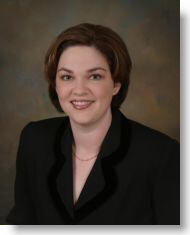I made this research as I myself had been thinking of what will happen when I die. Nevertheless, some do not want to know or think what will transpire during the near-death situation, but some are prepared for as such especially when a person suffers lingering illness or has been given a short period of time to live.
Is there afterlife? I guess most of us think about this. You might heard of people "resurrected" after death and narrate stories of their own experience about the afterlife.
Take the case of Dr. Eben Alexander, a neurosurgeon at Harvard Medical School. He fell into a deep coma caused by bacterial meningitis sometime in 2008. After seven days of brain death, Dr. Alexander woke up from coma. His memories of the coma varied from obscure visions to a journey through the ‘core’, in which he met with the God. As a result, he realized that there is another kind of existence except the one he knew and studied.
Most scientists believe that “when the brain dies, the same happens to the mind or soul or self”. But the experience of Dr. Alexander shows that this is not the whole truth: how can a person with a dead brain have a rich spiritual experience if his soul has died too?
Dr. Alexander author a book titled "Proof of Heaven" - A Neurosurgeon's Journey Into the Afterlife: Consciousness is the most profound mystery in the universe.
Can the mind function without the physical body? A quite complicated question that bugs my mind. In my own simple way of understanding, how can our mind function without our physical body?
Bruce Greyson, a Professor of Psychiatry at the University of Virginia and a co-author of Irreducible Mind and co-editor of The Handbook of Near-Death Experiences and a leading expert in near-death experiences has studied over 100 cases near-death episodes.
Dr. Greyson learned that many patients claim of having experienced a sense of peace and separation from the physical body. Also there are cases when people claim to have met their deceased loved ones.
Although the majority of scientists considers such experiences nothing more than illusions caused by the difficult condition when the brain is under tremendous pressure, Dr. Greyson thinks that near-death experiences prove the hypothesis that the mind can function without the physical body.
Do we really die? Have you tried to asked yourself if do you really die?
Robert Paul Lanza is an American Doctor of Medicine, scientist, Chief Scientific Officer of Advanced Cell Technology and Adjunct Professor at the Institute for Regenerative Medicine, Wake Forest University School of Medicine. He is the one who developed the biocentrism theory, argues that as far as space and time exist only as tools of better understanding the world around us, they do not exist without consciousness and therefore in reality we never die. In his opinion, “death is a reboot that leads to all the latent possibilities”.
These ideas of Dr. Lanza are closely tied to the theory he suggested, according to which, life and biology are the central concepts in existence, reality and the world, and life creates the universe, not vice versa. According to the biocentrism, modern theories of the physical world will not work until they fully explain life and consciousness.
Any 'fantastic' happens then?
So, what now? You might be thinking that something 'fantastic' happens then?
Dr. Wendy Wright is a neurosurgeon and Board-certified in Neurology and Vascular Neurology, and her academic interests include patient safety and physician advocacy.
Dr. Wright, a neurologist of Emory University, considers near-death experiences nothing more than a result of the release of endorphins in the brain, which “provoke different kinds of phenomena: one person can experience a sense of tranquility or feel being surrounded by his loved ones”. Such visions are just tricks of the brain, according to Dr. Wright.
Please feel free to post comments here.
Search This Blog
Popular Posts
About Me
Contact Form
Translate
Site Counter
Labels
- Affiliate Marketing (5)
- Animal Rights Activism (14)
- Anxiety & Stress (2)
- Art Fairs & Festivals (5)
- Business & Industrial (1)
- Business & Technical Writing Courses & Resources (1)
- Business Opportunities (2)
- Cancer Awareness (2)
- Cancer Survival (2)
- Carnival & Mardi Gras (3)
- Celebrities & Entertainment News (10)
- Chinese Herbal Medicine (1)
- Chualar Crop Circle (1)
- Consumer Goods Manufacturing (1)
- Covid-19 (4)
- Creativity (2)
- Dog Rescue (4)
- Education & Training (13)
- Educational Tour (1)
- Employee Relations (2)
- Facebook (2)
- Family & Community (12)
- Financial Planning & Management (2)
- General (2)
- Health (41)
- Health Conditions & Concerns (17)
- Heart Health (3)
- Hobbies & Leisure (2)
- Humanity (1)
- Infectious Diseases & Viruses (6)
- Internet (2)
- Labels & Labeling (1)
- Law & Government (14)
- Man's Best Friend (2)
- Media & Publications (2)
- Mental Health (6)
- Mind and Body (13)
- Mother Earth (1)
- Necrotizing Fasciitis (1)
- News (56)
- Nutrition & Dieting (1)
- Pandemic (3)
- Parenting & Family (12)
- People Search (4)
- Personal & Career Development (18)
- Pets & Animals (30)
- Pets Animals (7)
- Phenomenon (1)
- Photographic & Digital Arts (2)
- Plants & Shrubs (1)
- Politics (3)
- Ransomware (1)
- Relationship Advice (3)
- Self Improvement (3)
- Social Service & Social Work Jobs (3)
- State & Local Government (3)
- Teaching & Classroom Resources (4)
- The Health Law (1)
- Tips (5)
- Trauma & Stress Disorder (3)
- Travel & Tours (1)
- Typhoon Ulysses (1)
- UFO Sightings (1)
- Vehicle History Reports (2)
- Web Design & Development (17)
Designed with by Way2Themes | Distributed by Gooyaabi | Home | My Passion | Submit Site to Search Engine CleverSubmitter






















0 Comments